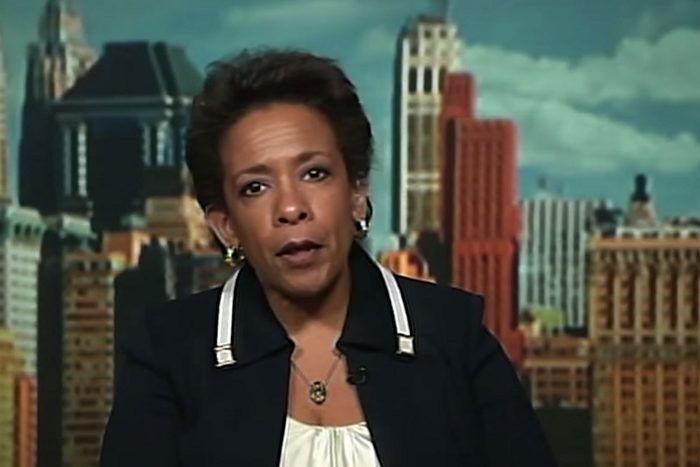Republicans Delay Confirmation of First Black Female Attorney General
“I think that Loretta Lynch is being held to a double standard,” said Sen. Patrick Leahy (D-VT), the committee’s ranking member.

The Senate Judiciary Committee was scheduled to vote Thursday on whether to advance the nomination of Loretta Lynch to the full Senate. If confirmed, Lynch would be the first Black female attorney general of the United States.
But in a move that exasperated Democrats, Chairman Chuck Grassley (R-IA) decided to “hold over” Lynch’s nomination for another two weeks until the committee’s next business meeting, after a Congressional recess.
“I think that Loretta Lynch is being held to a double standard,” said Sen. Patrick Leahy (D-VT), the committee’s ranking member.
Leahy’s complaint, echoed by several Democrats on the committee, was that Republicans weren’t giving Lynch the same courtesy of a speedy confirmation process that Democrats have given Republican attorney general nominees.
Lynch’s nomination has been pending for 96 days, longer than any modern attorney general nominee.
Sen. Dianne Feinstein (D-CA) spoke of another double standard: “I have never seen a witness in my 22 years do better at a hearing. … But I guess because [Lynch] is a woman, what I kind of object to is that she is singled out.”
Feinstein said that the last attorney general nominee to be held over in this way by the judiciary committee was Alberto Gonzales, and that in Feinstein’s experience confirming five attorneys general, “we move them all quickly for very good reasons.”
Leahy noted that when he was chairman and President George W. Bush nominated Michael Mukasey to the post, Leahy got the nomination through in 53 days—even though Democrats at first asked for the nomination to be held over, and even though Leahy himself voted against Mukasey for not answering whether he thought waterboarding was torture.
During Lynch’s confirmation hearings last month, Leahy asked both supportive and critical witnesses if any of them objected to her nomination, and no one raised their hand.
Grassley’s objection to voting on Lynch this week, he said, was that he found her answers to the committee’s questions “incomplete” and had hoped she would answer in a more “directly responsive way.”
Grassley complained that too many of Lynch’s answers said she hadn’t had the opportunity to become familiar with certain issues in her capacity as U.S. attorney. The extra time from the holdover, he said, will give her a chance to answer more follow-up questions.
Leahy countered that Mukasey had responded to many questions saying that he wasn’t in a position to comment.
“No Republican objected to him saying that answering wasn’t appropriate, he wasn’t yet attorney general, and that that he would review these statements. We all took him at his word. Now when she has given similar answers—‘Oh my gosh, listen to this woman, how can she possibly give us an answer like that, why, we’d better hold her over more,’” Leahy said.
Sen. Orrin Hatch (R-UT), one of several Republicans on the committee who supports Lynch, said he wants her to be confirmed but doesn’t “see any reason for the fuss made here” because the committee’s rules have always allowed any member to hold business over.
Sen. John Cornyn (R-TX), who doesn’t support Lynch, accused Democrats of “faux outrage.”
He brought up the fight over funding the Department of Homeland Security (DHS), which Republicans made a major issue in Lynch’s confirmation hearings. He claimed that in the “alternative reality that seems to pervade here in Congress,” Democrats are mistakenly accusing Republicans of being the ones holding DHS funding hostage.
Lynch said during her nearly eight hours of questioning that she believes Obama’s executive order on immigration is “reasonable” and legal.
“The overwhelming opinion is that what the president did was right. And it is not fair to hold [Lynch] up, because you’re never going to get her to say that answer, if that’s what you’re waiting for,” Sen. Chuck Schumer (D-NY) said about the president’s executive action on immigration. “She has said clearly what she thought, she didn’t beat around the bush.”
Schumer, who called Lynch’s qualifications “exceptional” and the nominee “even better in person than she is on paper,” said he saw no reason to object to her.
“I can’t understand why people would vote against her unless you’re saying, ‘She doesn’t have the same views I have on every issue,’” Schumer said. “And then you should vote for no nominee, because there probably isn’t one.”

